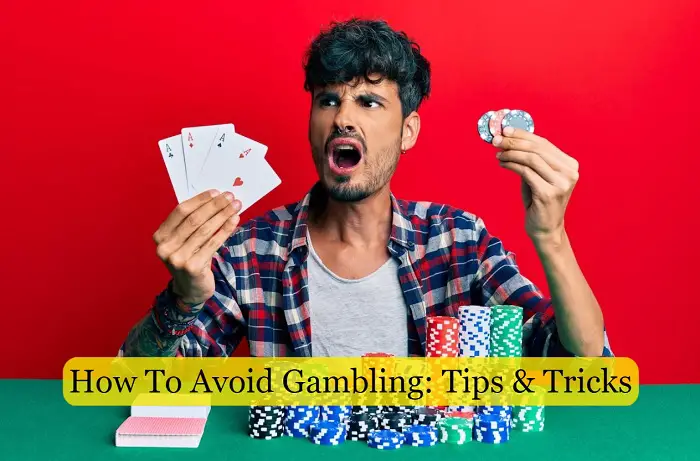In the world of gambling, the risks are high, but rewards can be even higher. It’s not just about sports betting; it encompasses horse racing, casinos, card games, pool tables, lotteries, and more. Yet, beneath the allure and excitement lies a dark side. Gambling’s fun facade hides a slippery slope leading to the treacherous path of addiction. This can lead to financial ruin, shattered relationships, legal entanglements, work woes, and even suicidal thoughts in the long run.
Remember the old days when being labeled a gambling addict came with a giant scarlet letter? Well, that’s history! In today’s world, the struggle against the urge to gamble is as real as it gets. And here’s the silver lining: you’re not navigating this path alone. We’re right here by your side, armed with powerful strategies to help you bid farewell to this habit for good.
- Embrace the Truth: Acknowledging your gambling addiction is the crucial starting point for regaining control. Recognize the signs and symptoms, reshape your behavior, and pave the way for a brighter future.
- Keep A Journal: Understanding these triggers and their connection to gambling can be achieved through journaling. Document the specifics of your gambling episodes, including type, duration, and financial impact. Examine the thoughts, emotions, and circumstances that precede and accompany your gambling episodes, unraveling the threads that fuel your cravings.
- Decipher Thoughts and Emotions: Dealing with the intense urge to gamble requires understanding and managing your thoughts and emotions. Track your thought patterns, whether they involve reliving past gambling experiences or are driven by boredom or stress.
- Prevent Boredom: Ex-gamblers often struggle with boredom. Plan your days to avoid empty moments that might trigger the urge to gamble. Research suggests problem gamblers have a low tolerance for boredom, so engaging in fulfilling activities can help.
- Manage Stress: Stress can lead to relapse. Adopt healthy stress-coping strategies like exercise, meditation, or talking to a friend to prevent the urge to gamble from growing stronger.
- Remember the Reality: Recognize that gambling leads to losses. Remind yourself that once you start, you can’t control the outcome. This perspective helps you resist the allure of potential rewards.
- Avoid High-Risk Situations: Stay away from triggers that may lead you to gamble, such as casinos or online gambling sites. Avoid media hype and promotional offers that might reignite your gambling desires. Engage in activities like meeting friends, watching movies, practicing mindfulness, or exercising to distract yourself from cravings.
- Live One Day at a Time: Focus on the present and let go of past losses. Don’t worry about the future. Concentrate on actions that support your recovery.
- Embrace Novelty: Challenge your brain with new goals and tasks daily to keep it engaged and distracted from gambling urges.
- Recognize the Benefits of Stopping: Reflect on the negative impact of gambling on your life, from financial troubles to strained relationships. Consider the positive changes that come with overcoming addiction.
- Negative Visualization: Associate gambling operators with negative imagery to deter the temptation. This mental practice helps reinforce the negative consequences of gambling.
- Seek Support and Remove Stigma: Confide in loved ones and ask for help. Sharing your journey can reduce shame and contribute to both personal and societal de-stigmatization.
- Seek Professional Help: Consider seeking assistance from organizations like the National Council on Problem Gambling and Gamblers Anonymous. Professional help, along with dedicated effort, can lead to successful recovery and positive life changes.
- Find Healthy Alternatives: Replace gambling with activities like mindfulness, art therapy, exercise, and volunteering to occupy your mind and reduce urges.
- Challenge Negative Beliefs: Identify and alter negative thought patterns, such as the gambler’s fallacy, superstitious thinking, and the illusion of control.
- Seek Long-Term Recovery: Understand that stopping gambling and achieving financial stability will take time and effort. Commit to a treatment plan, involve your loved ones, and embrace the fact that seeking help is a courageous step, not something to be ashamed of.
- Practice Gratitude: Maintain an attitude of gratitude by listing your achievements and strengths. Focus on the positive aspects of your life to enhance self-esteem and prevent relapse.
- Physiological Understanding: Acknowledge that addiction has a physiological basis, which can help you approach your recovery with empathy and seek the necessary resources, assistance, and emotional encouragement to overcome the issue.
- Rekindle Old Hobbies: Rediscover hobbies you once enjoyed to boost self-esteem and provide a positive reminder of your new life.
- Avoid Quitting Cold Turkey: Quitting gambling abruptly (“cold turkey”) is often ineffective and challenging. Instead, recognize that overcoming a gambling addiction is a gradual process requiring a well-structured treatment plan, support from friends and family, and a positive mindset.
- Seek Social Support: Engage in social support networks to aid your recovery. Confide in trustworthy friends and family members, enabling them to help you navigate triggers and manage stress. Consider joining groups like Gamblers Anonymous to share experiences and connect with others who understand your journey.
From teenagers to adults, the clutches of gambling addiction can reach anyone. In the United States alone, around 6 million individuals grapple with this challenge. Though addiction is a multifaceted puzzle, rest assured that there is a multitude of treatment avenues to guide you on the path of overcoming it and reclaiming mastery over your life.

